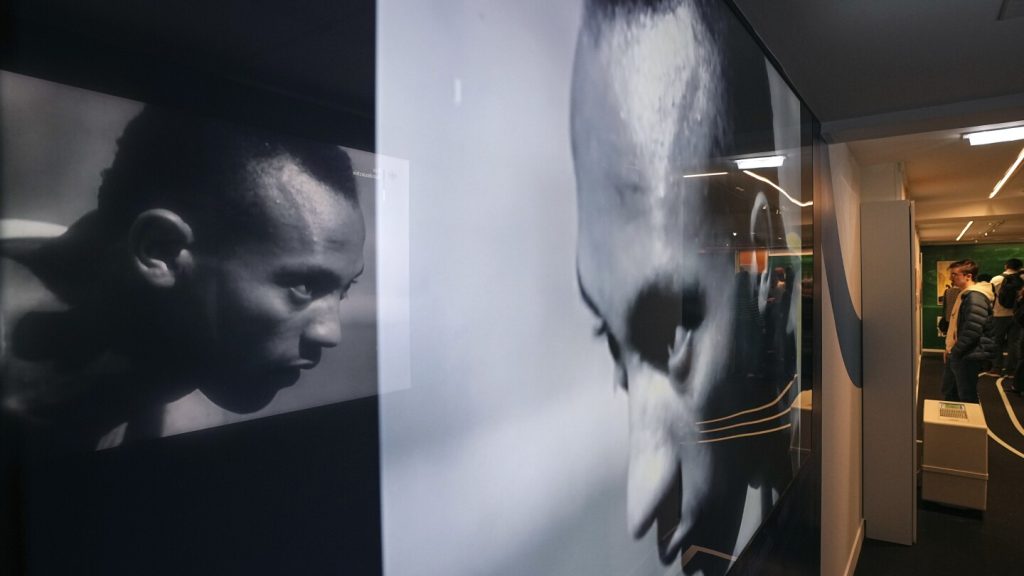An upcoming exhibit in Paris explores the political and historical significance of the Olympics as a platform for propaganda and social change. The exhibit, located at the Shoah Memorial, features photos, documents, and Olympic items from the past century. It highlights key moments such as the 1936 Berlin Olympics used by Nazi Germany for propaganda, the 1968 Mexico Olympics where Black athletes protested against racial injustice, and the 1972 Munich Olympics marred by a brutal attack on Israeli team members. The exhibit also tells the stories of athletes like Alfred Nakashe, a Jewish swimmer who survived the Holocaust and competed in the Olympics.
The curator of the exhibit, Paul Dietschy, aims to showcase the relationship between ideology, power, and the Olympic Games. Through the stories of athletes like Jesse Owens, who defied Nazi ideology in Berlin, the exhibit explores the complex intersection of sports and politics. Owens, a Black athlete from the U.S., won four gold medals in the 1936 Games, challenging Hitler’s beliefs while facing racism and segregation in his own country. The exhibit also sheds light on the dark history of Olympic stadiums being turned into internment camps during World War II, highlighting the tragic events that transpired in France under Vichy rule.
The upcoming Paris Olympics are anticipated to be another political stage, with Russia and Belarus facing restrictions due to ongoing conflicts and the IOC’s vetting procedures for individual athletes. Amidst global tensions, the IOC is navigating complex geopolitical issues while ensuring the safety and inclusion of all participating nations. The exhibit’s curators hope that the Paris Games will serve as a moment of peace and unity, showcasing the idea that sports can promote universal democratic values. In a world marked by wars and conflicts, the Olympics have the potential to transcend political divides and foster a sense of harmony and cooperation.
Historian Caroline François, another curator of the exhibit, emphasizes the importance of remembering the history behind Olympic events like the 1936 Games in Berlin. The stories of athletes like Jesse Owens and Alfred Nakashe serve as powerful reminders of the resilience and courage displayed in the face of adversity. By exploring the past through the lens of the Olympics, the exhibit aims to provoke reflection on the role of sports in shaping societal values and challenging oppressive ideologies. As the world gears up for the Paris Olympics, the stage is set for a new chapter in the ongoing dialogue between sports, politics, and human rights.
As the exhibit opens to the public, visitors will have the opportunity to delve into the intricate and often fraught history of the Olympics, from moments of triumph to instances of tragedy. The curated collection of images, artifacts, and stories offers a poignant reminder of the complex interplay between sports and politics on the world stage. By examining past Olympic Games and their societal impacts, the exhibit invites viewers to consider the broader implications of athletic competitions as platforms for both propaganda and activism. Ultimately, the exhibit serves as a powerful testament to the enduring legacy of the Olympics as a reflection of the evolving dynamics of power, ideology, and resistance.


